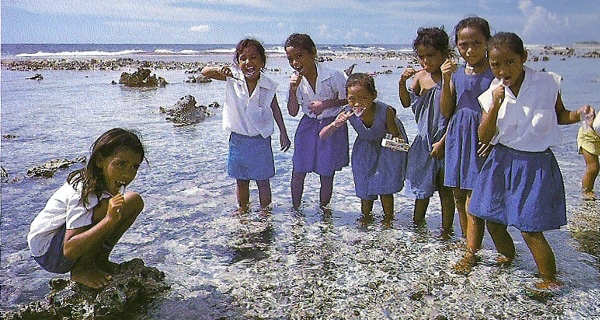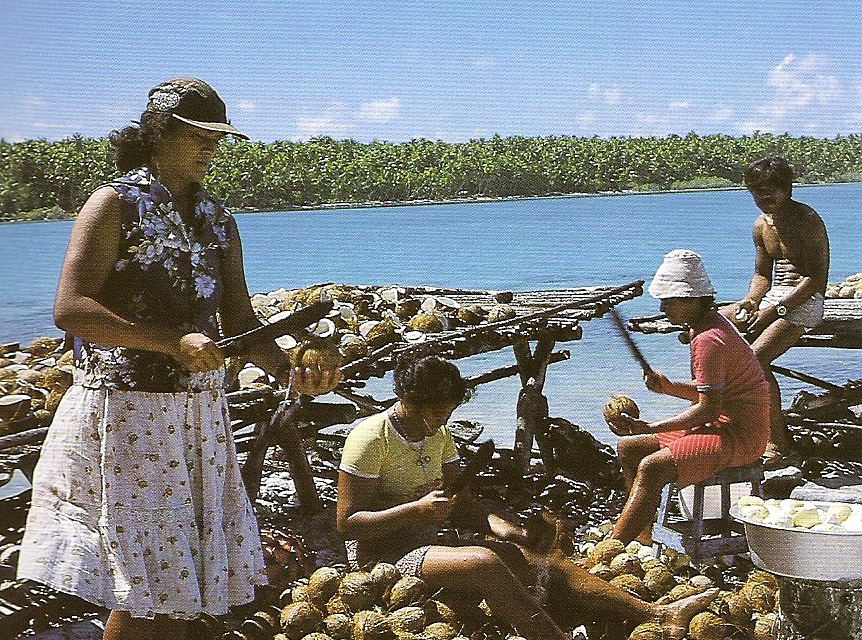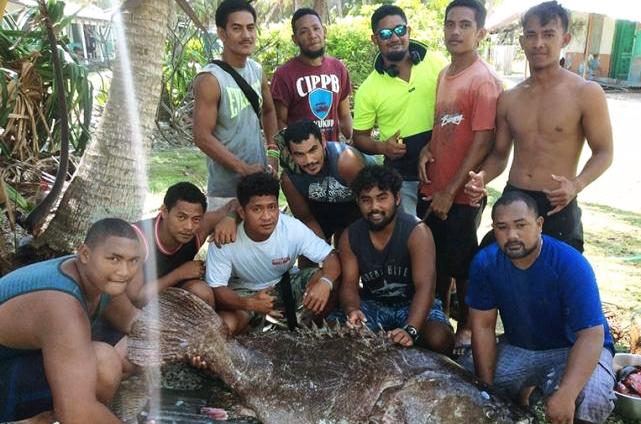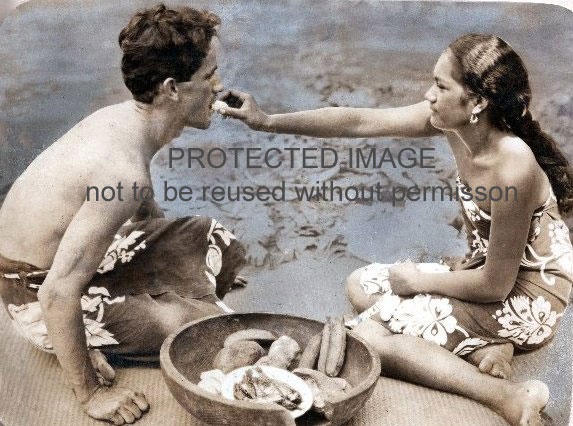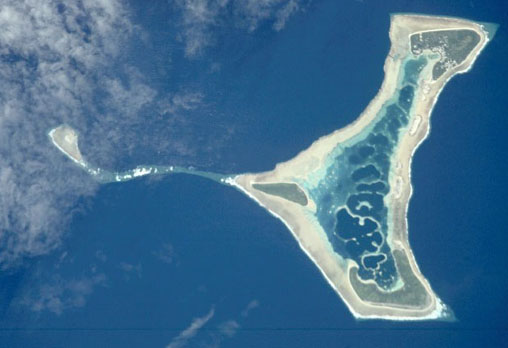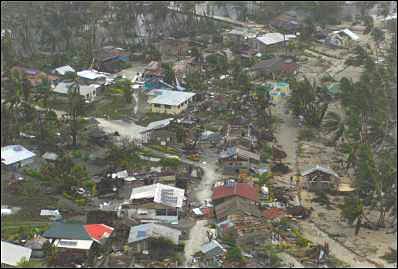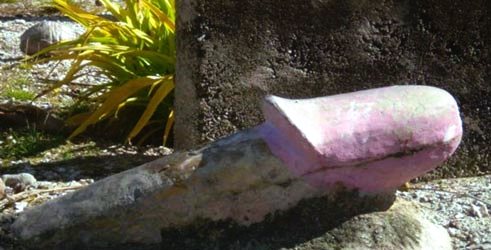COMMMUNITY LIVING...WITH RULES, FINES AND PARTIES
Living on Pukapuka is a bit like being in a commune. The islanders practice traditional conservation (ra'ui) which calls for entire villages to move from atoll to atoll for periods of time. But this is not a nomadic existence...rather it's one with a focus on maintaining the delicate ecological balance. The felling of trees is also prohibited without permission from village elders. If a bird is killed out of season, or crabs or coconuts taken early, small but humiliating fines are imposed. For more serious offences, the person is treated as a child until sincere remorse is shown. The offender cannot speak at meetings and is given a child's food and wages
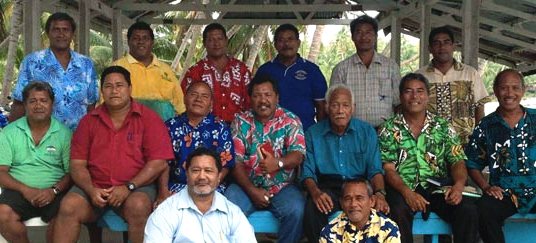
New year celebrations last almost to the end of February when the Island Chiefs (Kau Wo Wolo) and the Island Council - pictured here in 2012 - hold their annual meeting to review the rules for governing the island in the coming year and the fines for breaking those rules. The Chiefs then visit each village to share the rules and let islanders discuss and ask questions about them. Caretakers or The Pules enforce the rules.


